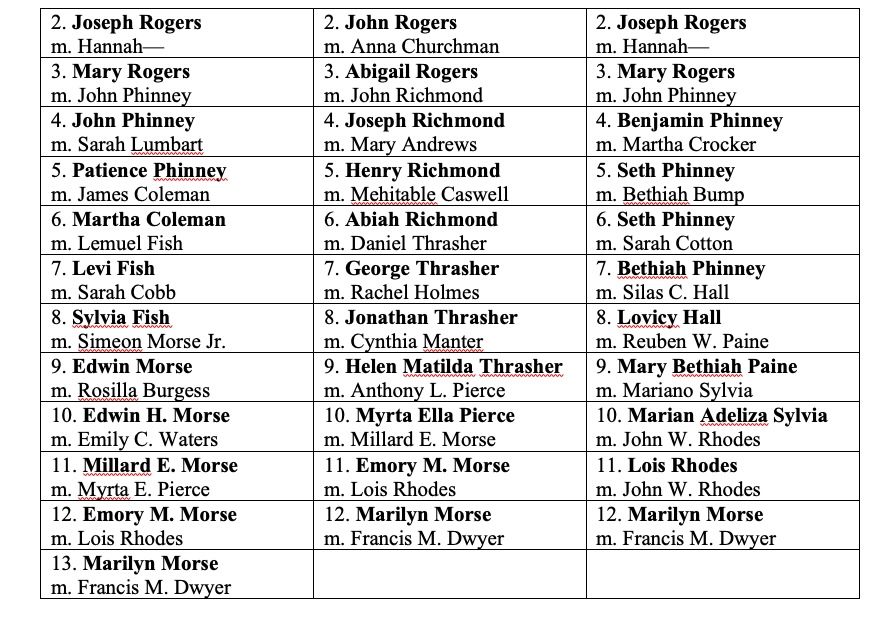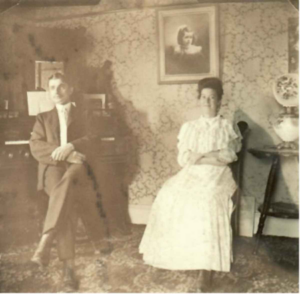 Scott Steward’s ICYMI post “Surrounded by family” inspired me to reflect on shared ancestors among my mother’s paternal grandparents, Millard E. Morse and Myrta E. Pierce, who married in Wareham, Massachusetts, on 13 October 1906. This photo, a family gem, captures the happiness of their wedding day.
Scott Steward’s ICYMI post “Surrounded by family” inspired me to reflect on shared ancestors among my mother’s paternal grandparents, Millard E. Morse and Myrta E. Pierce, who married in Wareham, Massachusetts, on 13 October 1906. This photo, a family gem, captures the happiness of their wedding day.
Considering this couple came from long-established Plymouth County families, it came as no surprise to me that they would share 33 pairs of shared ancestors — starting six generations preceding them, well beyond any shared recollections. In my novice days as a genealogist, over 40 years ago, what a boon I experienced in accessing the New Bedford Public Library’s collection of family genealogies. And what a delight to find family groups in the General Society of Mayflower Families silver books! A few Plymouth families still elude me, but among the “new” Mayflower lineages I documented were the parents of Sylvia Fish, born circa 1777 in Sandwich, daughter of Levi Fish and Sarah Cobb, and Rebecca Palmer, born circa 1739, daughter of William Palmer and Esther Taber.[1]
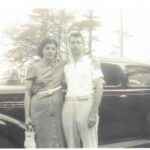 Unlikely seventh cousins once removed: my grandparents, Emory and Lois (Rhodes) Morse, in Wareham, Massachusetts in 1936.
Unlikely seventh cousins once removed: my grandparents, Emory and Lois (Rhodes) Morse, in Wareham, Massachusetts in 1936.
My mother’s parents, Emory Morse and Lois Rhodes, never would have dreamed they had ancestors in common. Three of Lois’s grandparents were born outside the United States: paternal grandfather William Rhodes in Devon, England; paternal grandmother Mary Counihan in County Kerry, Ireland; and maternal grandfather Mariano Sylvia in St. Michael, Azores.
That left a possibility that the lineage of Lois’s maternal grandmother, Mary Bethiah (Paine) Sylvia, born on Block Island in 1848, might lead to a “duplicate ancestor.” It took me years to trace Mary’s ancestry back into eighteenth-century Massachusetts.
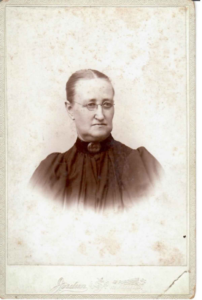 Though Mary B. Sylvia lived until 1933, her last studio picture above dates to 1898, perhaps on the occasion of her daughter Isabelle’s marriage to Amos Chase. How I wish her husband joined her for the sitting, because no formal picture of him survives!
Though Mary B. Sylvia lived until 1933, her last studio picture above dates to 1898, perhaps on the occasion of her daughter Isabelle’s marriage to Amos Chase. How I wish her husband joined her for the sitting, because no formal picture of him survives!
A series of discoveries, first within traditional published genealogical studies and later from genetic evidence, confirmed one set of Mary Sylvia’s great-grandparents as Seth Phinney and Sarah Cotton, who married in Harpswell, Maine, in 1788. Seth was likely born in Barnstable, Massachusetts, circa 1760, before his parents moved to Harpswell in 1763.[2] Seth could count Mayflower passenger Thomas Rogers in his pedigree, and thus, this Mayflower passenger who died during the first winter emerged as the ancestor-in-common of my mother’s parents.
We have no control over where our forebears lived. It strikes me as a marvel of geographic and historical happenstance when ancestors we know by name lived in regions that generated remarkable records and served as an area of study that other genealogical scholars continue to plumb. With generations of unknown Irish and Portuguese ancestors, I never take the privilege of discovering a paper trail for granted.
Three lines of descent from Thomas Rogers to my mother, Marilyn (Morse) Dwyer:
Notes
[1] Approved Mayflower supplemental lines of Michael Dwyer, General Society #48,876.
[2] Joseph Crook Anderson and Lois Ware Thurston, Maine Families in 1790 (Rockport, Me.: Picton Press, 1994), 4: 218–19.
Share this:
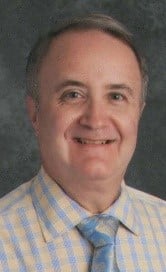
About Michael Dwyer
Michael F. Dwyer first joined NEHGS on a student membership. A Fellow of the American Society of Genealogists, he writes a bimonthly column on Lost Names in Vermont—French Canadian names that have been changed. His articles have been published in the Register, American Ancestors, The American Genealogist, The Maine Genealogist, and Rhode Island Roots, among others. The Vermont Department of Education's 2004 Teacher of the Year, Michael retired in June 2018 after 35 years of teaching subjects he loves—English and history.View all posts by Michael Dwyer →
